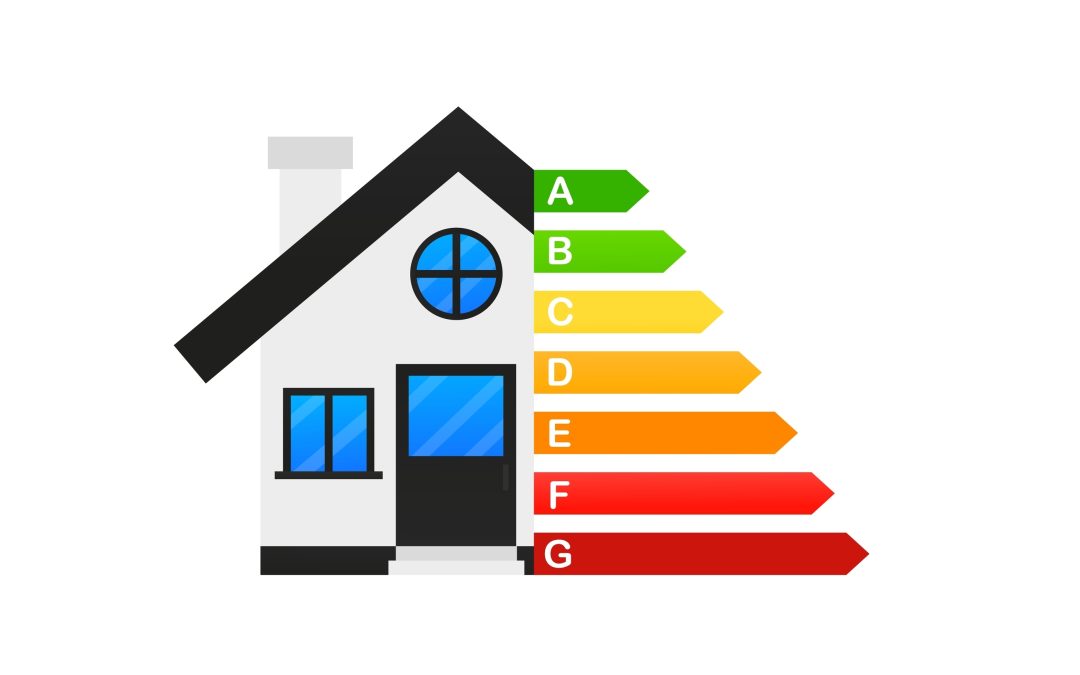Most of us want better insulated homes to reduce the cost of our energy bills, and do our bit to look after the planet.
But often the cost and the hassle of upgrading the Energy Performance Certificate (EPC) rating of your home makes people think twice about taking action.
In this blog we look at the pros and cons of investing in your EPC rating, and how you might go about it to make it as straightforward as possible.
What does the EPC rating of your home mean?
First, let’s be clear on what we mean by your EPC rating.
When you buy a home, you’ll see that it is rated A (most efficient) to G (least efficient), and you’ll have a report that explains the reasons.
Nowadays, there’s a drive to get more houses into the ‘C’ bracket, and houses with a rating of A, B, or C have significant value in today’s property market.
Different rules for landlords
If you’re a landlord, the EPC rating of your property has probably been on your radar for a while.
The last government introduced (and then scrapped) a policy that your properties must have a minimum rating of ‘C’ by 2025 for new tenancies and by 2028 for existing ones.
The new Labour Government has reintroduced this target on a slightly longer timescale. Now landlords must achieve a C rating in their property by 2030. If you don’t manage it, you won’t be allowed to let out your property.
How do you invest in your EPC rating?
If you’re thinking about investing in your EPC rating, the first place to look is your EPC report. It will give you recommendations of actions you can take that are specific to your property.
Common ways to invest in your EPC rating are:
- Upgrading your boiler if it is old or inefficient
- Double or triple glazing your windows
- Insulating your hot water cylinder (if you have one)
- Cavity wall insulation
- Installing solar panels
- Bolstering your loft insulation
How to fund it
Of course, these improvements are fairly expensive on the face of it. But there is help out there, and probably more to come. In Labour’s manifesto they set out a Warm Homes Plan which pledges to invest £6.6 billion to upgrade five million homes to cut bills for families.
https://labour.org.uk/change/make-britain-a-clean-energy-superpower/
The manifesto mentions grants and low interest loans to help with the cost. And there will be links with private finance to accelerate home upgrades and low carbon heating.
Landlords may also think about bridging loans to get quick and flexible access to cash for these improvements.
For home buyers, there are ‘Green Mortgages’ available when you purchase a property with a high EPC rating, or you renovate a property with a low EPC rating with the intention of improving it.
These Green Mortgages give you lower interest rates, cashback incentives, or larger loan amounts.
If you’re interested in finding out more about your finance options, we can put you in touch with a commercial finance broker, or a mortgage broker for specialist advice.
Reasons to invest in your EPC rating
So why would you go to all the trouble and expense of investing in your EPC rating? The main reasons are:
- Reduce your energy bills
- Lower your carbon footprint and protect the environment
- Add to the value of your home
- Make your property more appealing to tenants and buyers
- There are tax breaks available for landlords for certain improvements
- You get a better rate on a mortgage when your EPC rating is A-C
Reasons not to invest just yet
But those reasons need to be balanced against your personal circumstances. You might hold back on investing just yet when you consider:
- The initial cost of the renovations
- Are you willing and capable of doing renovations, which might be disruptive in your home while the work is being done?
- You might want to wait and see whether Government grants are on their way
Key takeaways
If you’re a landlord and your property has an EPC rating of D-G, then you need to start thinking about upgrading your EPC rating now. You have just over 5 years to upgrade your rating to C. While that might seem like a long time, you may want to spread the cost and potential disruption to your tenants.
If you’re a homeowner, you will reduce your energy bills by upgrading your EPC rating, and your home will be given a higher valuation when you come to sell it if your rating is C or higher. If you have the money, it’s worth investing in your EPC rating. But you may want to wait a few months to see whether this new Government will introduce grants and other incentives for homeowners.

